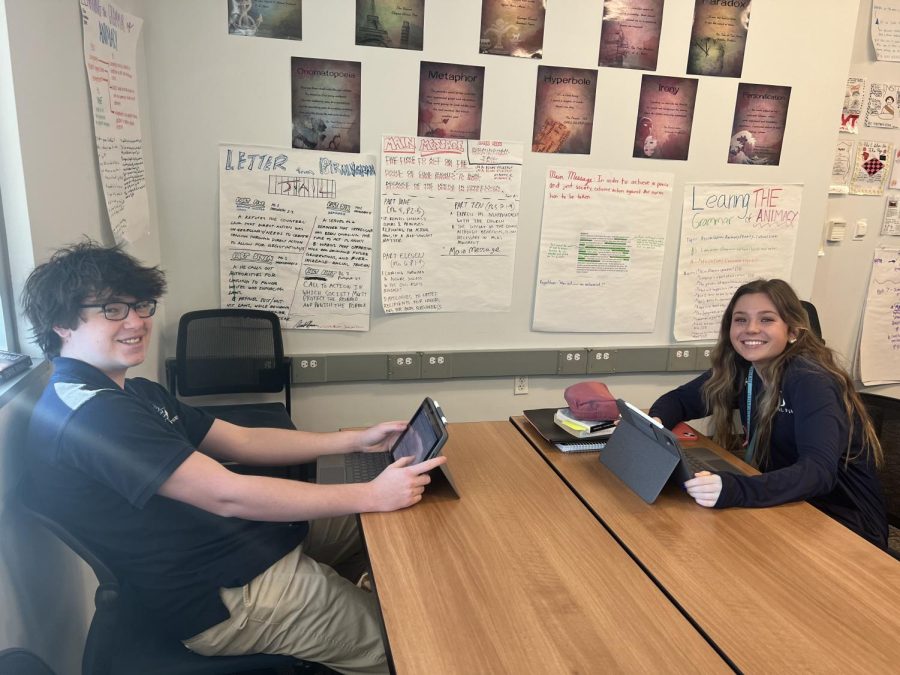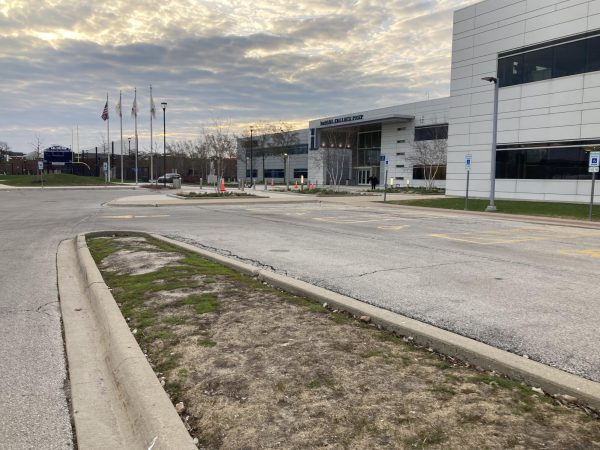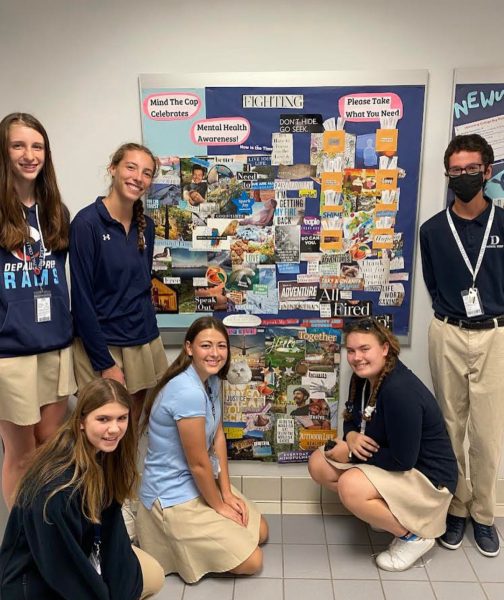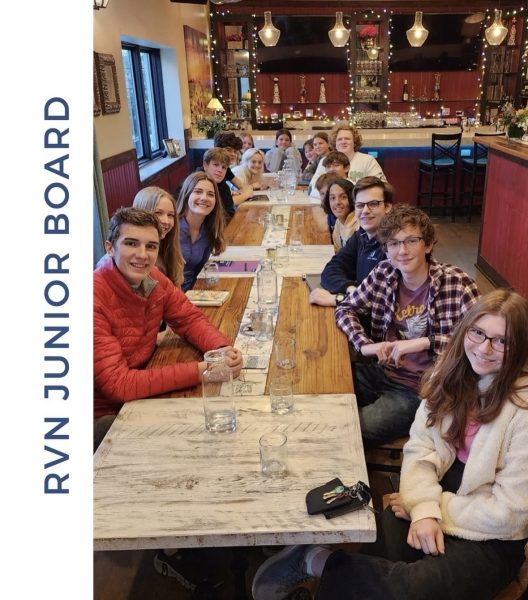Students, and teachers, differ in beliefs about iPads’ place in learning
In recent years, technology has developed to be the biggest and best it has ever been. Schools across the United States are still trying to figure out if it would be more beneficial to switch entirely to technology, but there are both positives and negatives to this solution. In a society that is becoming increasingly technology-driven, how does this apply to the DePaul Prep community?
Junior Ally Marinescu states that when it comes to studying for tests, her perception is that it is still more convenient and effective to read off of physical papers, as it eliminates the distractions associated with digital devices.
“I think that paper gets rid of a lot of distractions that can come with being on an iPad, so I think it can be a good thing [to work with paper]. Physical worksheets or notebooks are beneficial because there are no distractions from apps to worry about. Sometimes I will print out study guides if they are digital because it’s easier to focus on,” Marinescu stated.
Junior Lucy Fries said that she sees the same in terms of effective studying and participation during class time.
“I feel like staring at a screen doesn’t allow me to grasp the information as well as when I am working on paper. On paper, I feel there is less room for distractions and I comprehend things much better.”
Math teacher Kaitlyn Pancini mainly uses technology to teach her courses. She understands the advantages and disadvantages that come with being essentially online, so she likes to incorporate some physical school supply activities into her curriculum to ensure that there are no tangible distractions.
“I think the accessibility of the iPad is important in math classes, especially when taking notes because you can change the colors for different steps when doing problems on math. But I think doing tests and quizzes on paper is important to get rid of cheating aspects.”
Pancini offered another reason for her preference of technology over physical school supplies while teaching her math classes.
“Especially in a math classroom, it’s nice to change between colors for different steps. It’s easier to project to the whole classroom using my iPad and Apple pencil and it is just neater to be able to create shapes and stuff on the iPad.”
Sandra Nagowska, physics teacher, uses physical school supplies almost all of the time in her classes. She likes to guide her students to learn physics while also giving them an underlying executive functioning lesson by enforcing students to keep a neat and organized binder of all the notes, activities, and homework that they do.
“Writing by hand increases brain activity and recall tasks over taking notes on an iPad. And the research says that the complex spatial and tactile information associated with writing by hand on paper is likely what leads to improved memory versus writing on a screen.”
Nagowska explains that high school students get an average of two notifications per minute – in her opinion. “Staying focused in this type of environment is very difficult. Digital distraction and temptation to browse is a very big problem for the teenage brain.”
Sophomore Lexi Ghattas described her use of iPads as a part of her curriculum as “extremely helpful for me to learn, because I think it keeps me as organized as I possibly can.”
As a younger student of the DePaul Prep student body, her experience from middle school, where she rarely used technology, and when she would it would be an old Chromebook, is much different then it is now. Having to keep track of tons of papers from each class is bound to get confusing and disorganized, so having one place with everything you need can assiduously cut that down.
That said, student counselor Nicole Kucera has worked with many students with many different learning styles and abilities. She interprets the use of iPads as a personal preference.
“My intuition would be pretty diplomatic – it depends on the student. I do think that high school students now have a much better understanding of technology, so for some people that comes really easily, but for students that learn differently, I do think that it’s much easier for them to remember things and record things with paper and pen as their learning style.”
Kucera understands that the essential use of technology in schools is to make things easier, which many people have declared as legitimate, but that may not always be the case for some students. At the end of the day, it comes down to how the student’s executive functioning skills work, which varies between every individual.
Joe Voss, currently one of DePaul Prep’s Assistant Principals, stood as the Director of Instructional Technology in 2015 when iPads were brought into DePaul Prep’s curriculum. Voss was in charge of implementing the iPads for student and teacher use for upcoming years at the time where DePaul Prep only had around 500 students. It was recognized that iPads were very useful for school purposes. Students and teachers were able to take notes, download textbooks, and communicate with one another easier and more efficiently.
“I think using it in more meaningful ways is the intention behind it, and I think when it is used in a meaningful way, there are a ton of available options for increasing students’ learning,” Voss stated.
Voss expresses that the initial understanding for adding iPads into the classroom has its do’s and its don’ts, which was a risk that he and the other DePaul Prep administrators were willing to take for the greater good of students and teachers.
“The main motive was that the technology is supposed to be used as a tool, and it’s supposed to help enhance learning. I think how teachers are incorporating the use of the iPad during their lessons is really the key to their overall use. Using iPads with a purpose, not just as something to check off the box.”
Ultimately, we must continue to build our understanding of both the risks and benefits that come with using technology, as well as physical supplies for education. Technology and physical school supplies can both amplify effective teaching and learning when in the hands of a teacher who uses them effectively.








Alma Kreuser • Feb 22, 2023 at 15:11
Wonderful piece. I am so impressed that many students realize how technology can be a distraction and voluntarily avoid it when possible. Great job.